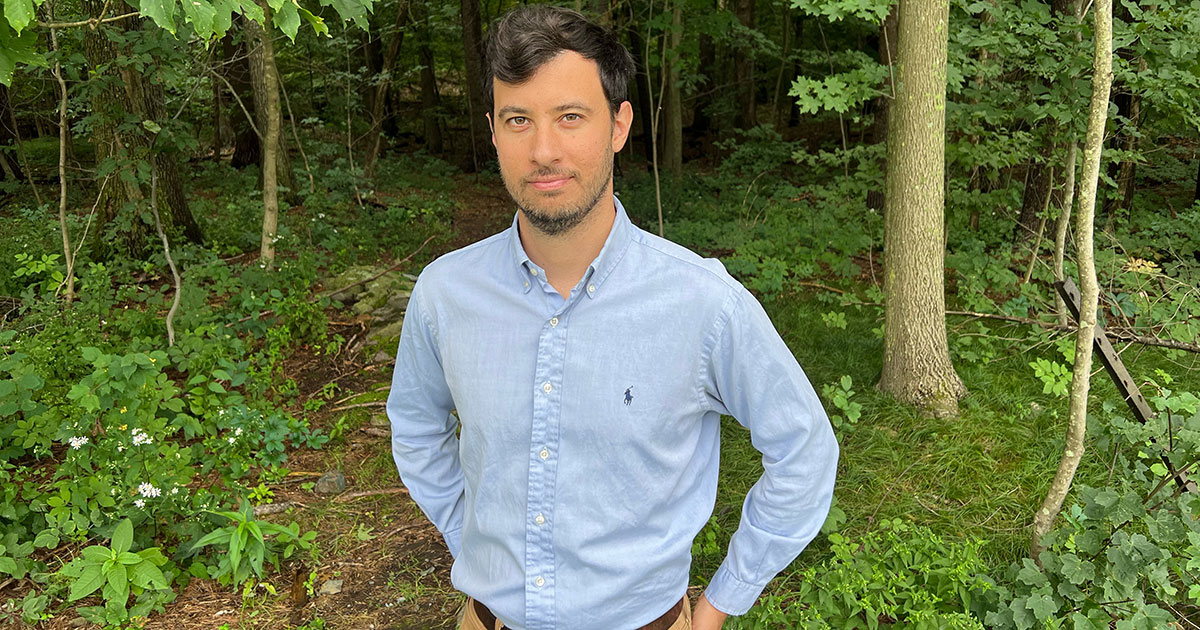A Personal Journey of Entrepreneurship Through Acquisition

When the company first reached out, offering him a job as general manager and CEO, Carlos Rodriguez Laconi MBA’17 wasn’t interested. Sure, he would listen to what they had to say, but he declined the offer. “I was not looking for a job,” he says.
But, the conversation stayed with him. He thought about the company and the opportunity it presented. Specifically, he thought about entrepreneurship through acquisition.
What Is Entrepreneurship Through Acquisition?
Entrepreneurship through acquisition, or ETA for short, is a different flavor of entrepreneurship in which entrepreneurs focus on growing an existing business, rather than launching a new one.
Laconi learned about entrepreneurship through acquisition as a graduate student at Babson. The concept appealed to him. “The type of entrepreneurship I like is stable businesses, not creating them from scratch,” Laconi says. He took any class he could on the topic, and he interned at an accelerator for search funds, a type of fund in which investors back entrepreneurs seeking to acquire a business.
After his conversation with the company, Laconi began thinking of ETA. “I thought this is a perfect company for a search fund,” he says.
Soon enough, Laconi set off on a journey to grow through acquisition. This is his story in four steps, from the initial identifying of an opportunity and meeting the owner, to building a company and eventually selling it.
1. Identifying an Opportunity
The company that contacted Laconi was Boston Tree Preservation. Founded in 1977, it specializes in organic landscaping and tree health. The company was successful but had grown stagnant, with an owner who was no longer too involved. “The company wasn’t dying, but it wasn’t growing,” Laconi says.
At first, the fit between Laconi and Boston Tree Preservation may not seem like a perfect one. Yes, Laconi is the co-founder of an agriculture and export company, Rodriguez Nocetti, focused on organic foods in his native Argentina. But, that doesn’t mean he has the proverbial green thumb. “I focus on finance and business development. I am not a farmer,” Laconi says. “I don’t know anything about trees.”
READ MORE about entrepreneurship through acquisition and why this entrepreneurial twist is booming at Babson College.
Laconi saw, though, that Boston Tree Preservation had many loyal, long-standing customers with contracts that were renewed annually. “Everyone knew the company,” he says. “If you are in the area, you knew this company forever.”
Laconi also liked the company’s approach to its business. Many arborists, when confronted with an ailing tree, may simply cut it down. With its organic treatments, Boston Tree Preservation may help a tree last longer, and, in the process, keep a customer for longer as well. “This is the only company doing organic,” he says. “That is huge value proposition.”
2. Analyze the Owner
When deciding whether to become involved with a business, Laconi suggests entrepreneurs shouldn’t simply meet the owner. More than that, they should analyze the owner’s life. Look at the owner’s house, car, vacations, the schools his or her children attend. Then ask yourself: Do you want that life?
That’s what Laconi did when he met Peter Wild, the founder and owner of Boston Tree Preservation. “I saw Peter’s life,” Laconi says. “He had success.” If a business offers an owner a good life, Laconi reasons, then the odds are it will offer you a good life as well.
Ultimately, Laconi and the owner came to an agreement. Laconi joined Boston Tree Preservation to operate, grow, and, ultimately, sell the company. Instead of taking any equity in the business at the start, Laconi would take profit equity in any growth in the company’s value. “The idea was to fix it and sell it,” he says.
3. Growing the Company
Laconi got to work at Boston Tree Preservation. One of his first projects was to address the company’s reliance on paper records. “Everything was paper,” he says. “The checks. All the contracts.”
All that paper was causing problems. Envelopes and checks could get lost, and customers leaving for Florida in the winter might not see their contracts that were sent in the mail.
“The type of entrepreneurship I like is stable businesses, not creating them from scratch.”Carlos Rodriguez Laconi MBA’17
So, Laconi led a digital transformation at the company. He also focused on bringing in a new type of customer. Traditionally, the company focused on homeowners, but Laconi began targeting commercial properties for one simple but important reason: They usually have more trees, and more trees means more business.
Through all the changes, Laconi made sure to listen to the company’s longtime employees. “I didn’t know the business. I had to rely on them,” he says. “They were smart guys. They were super open.”
4. Selling the Company
After two years at Boston Tree Preservation, Laconi oversaw the selling of the company. “We ended up changing the company and taking it to the next level,” he says.
The business was sold to a search fund, led by Don Gourley MBA’14, someone Laconi had met first at Babson. Their shared background allowed them to trust each other as they finalized the deal, Laconi says. An entrepreneur and U.S. Army veteran, Gourley was interested in buying a small business to operate for the long term.
The final result pleased Wild, who watched as the company he built was passed on to new hands. “He is super happy,” Laconi says. “We are still in contact all the time. We are very good friends. I went to his kid’s wedding.”
Posted in Entrepreneurial Leadership, Outcomes





